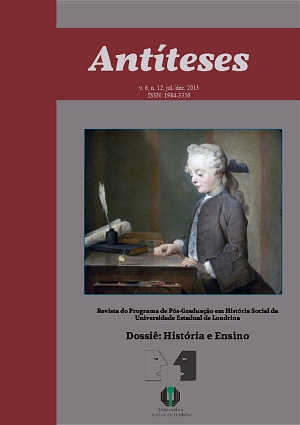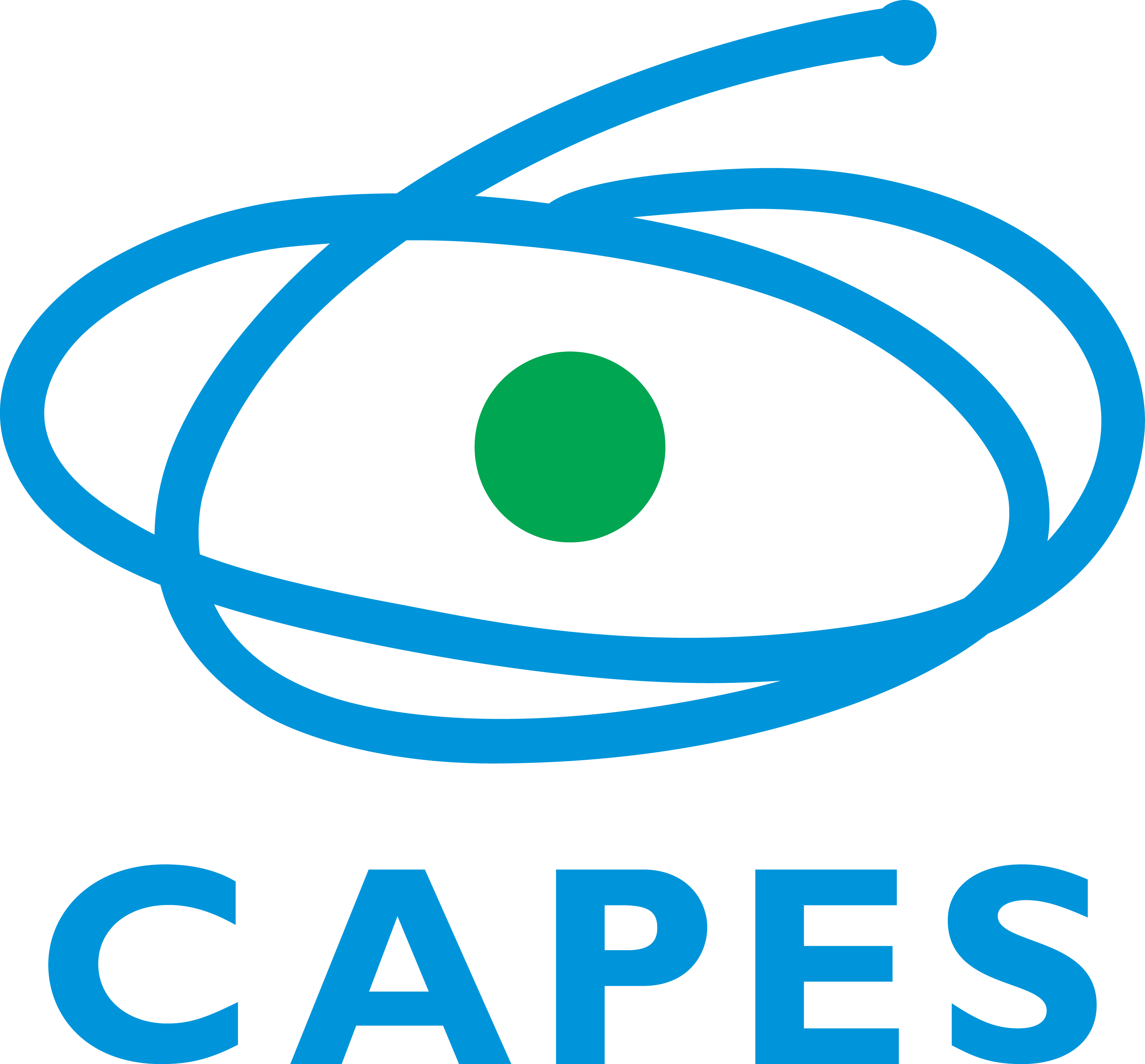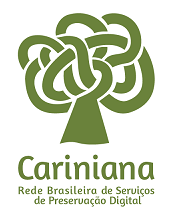Among Paulas, Martas, Pedros, Anas... in order to understand the complex subjects/knowledge relations in the context of historical learning
DOI:
https://doi.org/10.5433/1984-3356.2013v6n12p148Keywords:
History teaching, Historical education, Teacher's formation, Historical learning, Scholar everydayAbstract
We comprehend the learning room as a space where teachers and students knowledge cross it other, permeated by the idiosyncrasies from the society that surrounds the school. This study aims know the pedagogical practice of two teachers in the history teaching for the formers years of the fundamental school, to comprehend as the work that they develop interfere in the student's historical knowledge construction. The study of case method of survey had the contribution of the teachers of two municipal schools from Londrina. The data, collected through the observation inside the learning room and semi structured interviews with the teachers, were analyzed from the theoretical assumptions announced by Isabel Barca, Hilary Cooper and Keity Barton. We concluded that there are similarities and differences on the teacher's practice and the students behavior in both classrooms. From a general view, the work with the history is based, nearly exclusively, in the didactical book reading and in the demand to the students retain the information from it. There's a silence in front of the questions raised by the students about the content and the mechanisms that permit the students to comprehend that the past can have many interpretations are inexistent.Downloads
Download data is not yet available.
References
BARCA, Isabel (Org.). O pensamento histórico nos jovens. Braga: Universidade do Minho, 2000.
BARCA, Isabel (Org.). Perspectivas em educação histórica. Centro de Estudos em Educação e Psicologia/lnstituto de Educação e Psicologia/Universidade do Minho, 2001.
BARTON, Keith. Idéias das crianças acerca da mudança através dos tempos: resultados de investigação nos Estados Unidos e na Irlanda do Norte. In: BARCA, Isabel (Org.). Perspectivas em educação histórica. Centro de Estudos em Educação e Psicologia/Instituto de Educação e Psicologia/Universidade do Minho. 2001. p. 55-68.
COOPER, Hilary. Didáctica de la história em la educación infantil y primária. Madrid: Morata: 2002.
COSTA, Marisa Vorraber (Org.). Caminhos investigativos II: outros modelos de pensar e fazer pesquisa em educação. Rio de Janeiro: DP&A, 2002.
LERNER, Delia. O ensino e o aprendizado escolar. Argumentos contra uma falsa oposição. In: CASTORINA, J. A. et al. Piaget - Vygotsky: novas contribuições para o debate. São Paulo: Ática, 1996. p. 85•146.
MIRANDA, Sonia Regina. Sob o signo da memória: cultura escolar, saberes docentes e história ensinada. São Paulo: UNESP/UFJF, 2008.
TARDIF, Maurice. Saberes docentes e formação profissional. Petrópolis: Vozes, 2002.
TUMA, Magda Madalena. Viver é descobrir: história. São Paulo: FTD, 2001.
BARCA, Isabel (Org.). Perspectivas em educação histórica. Centro de Estudos em Educação e Psicologia/lnstituto de Educação e Psicologia/Universidade do Minho, 2001.
BARTON, Keith. Idéias das crianças acerca da mudança através dos tempos: resultados de investigação nos Estados Unidos e na Irlanda do Norte. In: BARCA, Isabel (Org.). Perspectivas em educação histórica. Centro de Estudos em Educação e Psicologia/Instituto de Educação e Psicologia/Universidade do Minho. 2001. p. 55-68.
COOPER, Hilary. Didáctica de la história em la educación infantil y primária. Madrid: Morata: 2002.
COSTA, Marisa Vorraber (Org.). Caminhos investigativos II: outros modelos de pensar e fazer pesquisa em educação. Rio de Janeiro: DP&A, 2002.
LERNER, Delia. O ensino e o aprendizado escolar. Argumentos contra uma falsa oposição. In: CASTORINA, J. A. et al. Piaget - Vygotsky: novas contribuições para o debate. São Paulo: Ática, 1996. p. 85•146.
MIRANDA, Sonia Regina. Sob o signo da memória: cultura escolar, saberes docentes e história ensinada. São Paulo: UNESP/UFJF, 2008.
TARDIF, Maurice. Saberes docentes e formação profissional. Petrópolis: Vozes, 2002.
TUMA, Magda Madalena. Viver é descobrir: história. São Paulo: FTD, 2001.
Downloads
Published
2013-12-03
How to Cite
CAIMI, Flávia Eloisa; OLIVEIRA, Sandra Regina Ferreira de. Among Paulas, Martas, Pedros, Anas... in order to understand the complex subjects/knowledge relations in the context of historical learning. Antíteses, [S. l.], v. 6, n. 12, p. 148–167, 2013. DOI: 10.5433/1984-3356.2013v6n12p148. Disponível em: https://ojs.uel.br/revistas/uel/index.php/antiteses/article/view/13320. Acesso em: 16 dec. 2025.
Issue
Section
Dossier
License
Copyright (c) 2013 Antiteses

This work is licensed under a Creative Commons Attribution 4.0 International License.
The journal reserves the copyright on the contributions published, without material compensation for the author, and may make them available online in Open Access mode, through its own system or other databases; you can also make normative, orthographic and grammatical changes in the originals, in order to maintain the cultured standard of the language, with the final consent of the authors. The opinions expressed by the authors are their sole responsibility.










